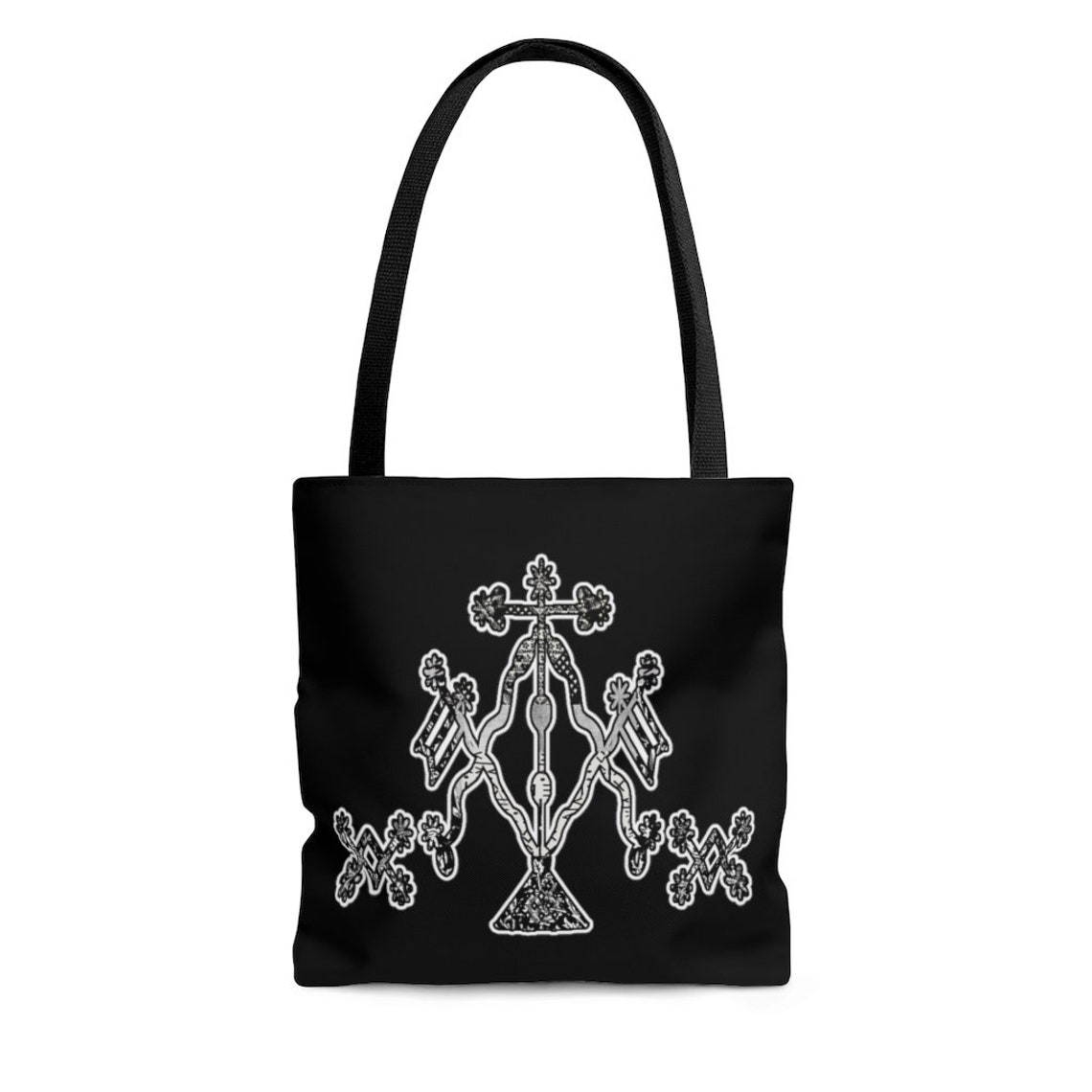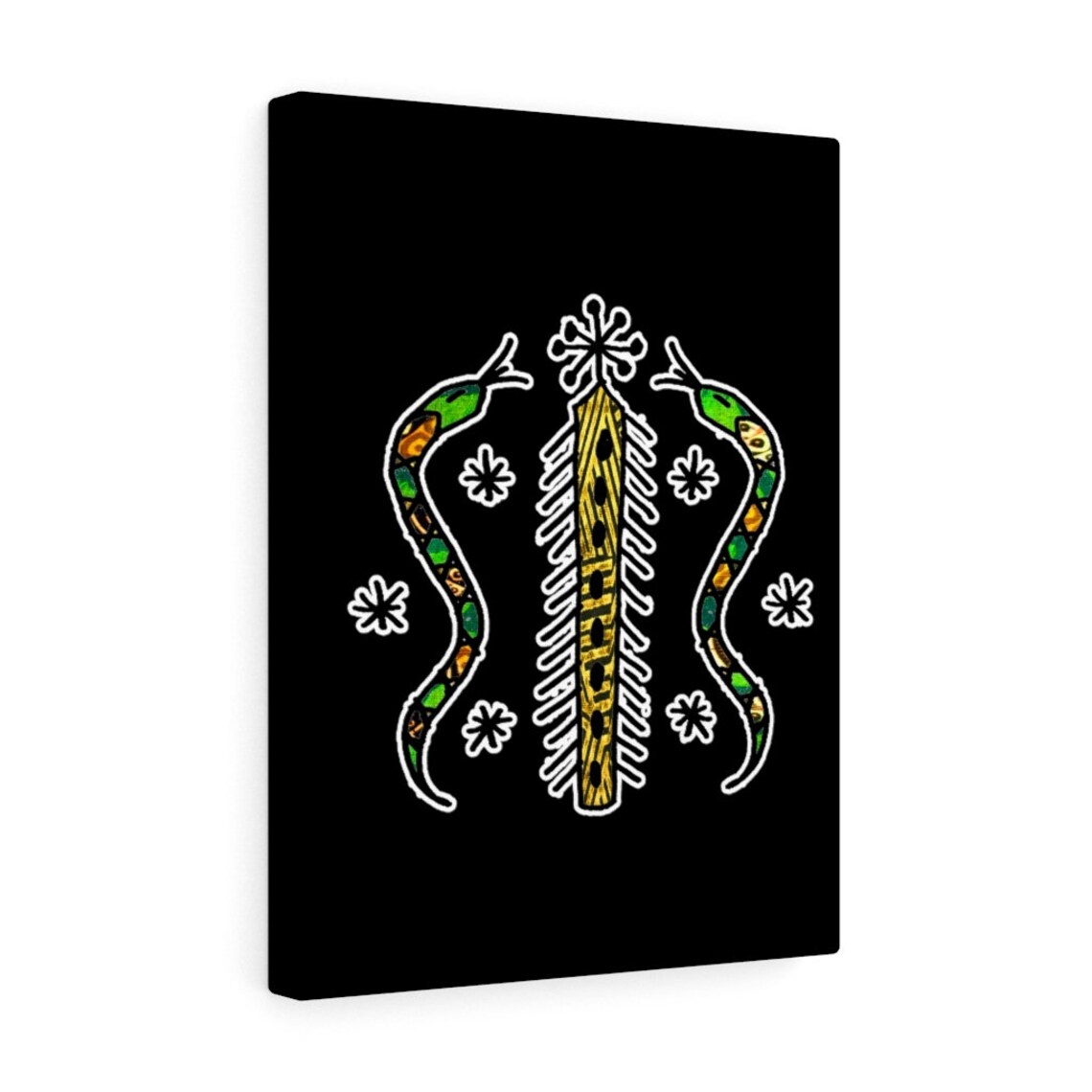

Healing, secrets, and magic are also associated with Gran Bwa as he hides certain things from the prying eyes of the uninitiated. Gran Bwa is often also seen as a guardian and protector of the ancestors who have always traveled from this world to the next. It is a mapou tree that is seen as connecting the material and spirit worlds (Vilokan), which is represented in the courtyard of Vodou temples by a central pole. It is native to Haiti and was made nearly extinct in the 20th centuries by opponents of Vodou. The mapou (or silk-cotton) tree is specifically sacred to Gran Bwa. But he is also big-hearted, loving, and fairly approachable. Temples often leave a section to grow wild in his honor. Gran Bwa is also the master of the wilderness in general and thus can be wild and unpredictable. He is strongly associated with plants, trees, and practices associated with those materials such as herbalism. Gran Bwa means "big tree," and he is the master of the forests of Vilokan, the island that is home to the lwa.

Offerings: Machetes, rum, cigars, red beans and rice, yam, red roosters and (non-castrated) red bulls Jacques) Loa Family: Rada Ogoun De Manye and Ogoun Yemsen are PetroĪssociated Catholic Saint: St. Other names: There are a wide variety of Ogoun aspects, including Ogoun Feray, Ogoun Badagris, Ogoun Balingo, Ogoun Batala, Ogoun Fer, and Ogoun Sen Jacque (or St.

One is associated with healing and is seen as a combat medic, another is a thinker, strategist, and diplomat, and many are machete-swinging warriors. Many credit him with planting the seeds of revolution into the minds of Haitian slaves in 1804.Įach of the many aspects of Ogoun has their own personalities and talents. He particularly likes the machete, which is a common offering in preparation of possession, and machetes are sometimes featured in his veves. His focus has transformed over the years to include power, warriors, and politics. Ogoun was originally associated with fire, blacksmithing, and metalworking. Offerings: An egg on a mound of flour corn syrup chickens other white objects such as white flowers. Patrick (who drove the snakes out of Ireland) Sometimes also associated with Moses, whose staff transformed into a snake to prove the power of God over that wielded by Egyptian priests Other names: Damballa, Damballah Weddo, Da, Papa Damballa, ObatalaĪssociated Catholic Saint: St. Because the creative process is seen as shared between male and female, Damballah-Wedo's veves generally depict two snakes rather than just one. As a source of life, he is also strongly associated with water and the rain.ĭamballah-Wedo is strongly associated with the ancestors, and he and his companion Ayida-Wedo are the oldest and wisest of the loa.Īyida-Wedo is likewise associated with snakes and is Damballah's partner in creation.

His movements are also snake-like and can include slithering along the ground, flicking his tongue, and climbing tall objects.ĭamballah-Wedo is associated with creation and is viewed as a loving father to the world. When he possesses a human, he does not speak but instead only hisses and whistles. Offerings: White sheep, champagne, toy ships, gunfire, rumĭamballah-Wedo is depicted as a serpent or snake, and his veves reflect this aspect of him. Ulrich (who is often depicted holding a fish) Other names: Agive, Agoueh, Met Agwe Tawoyo Loa Family : Rada His Petro aspect is Agwe La Flambeau, whose realm is boiling and steaming water, most commonly in connection with underwater volcanic eruptions.Īssociated Catholic Saint: St. If the offerings return to shore, they have been refused by Agwe.Īgwe is commonly depicted as a mullato man dressed in a naval uniform, and when in possession of another behaves as such, saluting and giving orders.Īgwe's female counterpart is La Sirene, the siren of the seas. Offerings are floated on the water's surface. Care has to be taken to keep the possessed from jumping into the water, which is where Agwe prefers to be.Ĭeremonies for Agwe are commonly performed near the water. When he arrives in possession of a performer, he is met with wet sponges and towels to keep him cool and moist while on land during the ceremony. Agwe is particularly important in Haiti, an island nation where many residents have depended upon the sea for survival for centuries. He is a water spirit and is of particular interest to seafaring people such as fishermen.


 0 kommentar(er)
0 kommentar(er)
